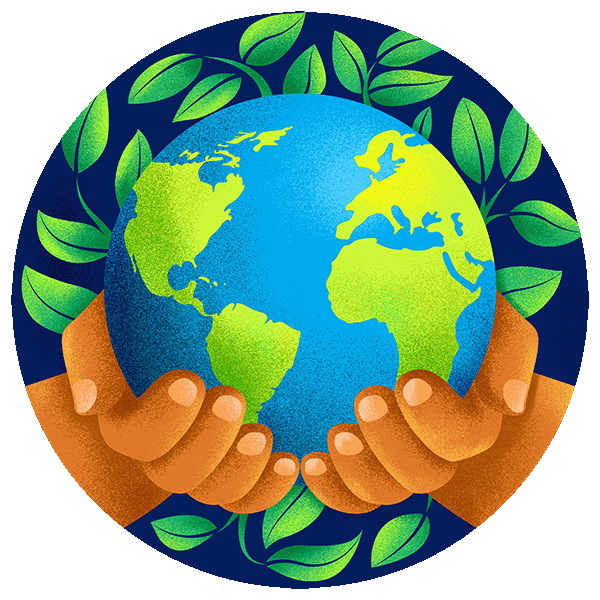
Indigenous Peoples Unite At COP26 - Cultural Survival Speaks To Hindou Oumarou Ibrahim
Thought leaders and environmental activists from all over the world have come together at the 26th UNFCCC Conference of Parties, in Glasgow, Scotland, in an effort to unite in the battle against climate change, and to share ideas of how Western science and Indigenous Knowledge can come together for the common good of mankind. Indigenous Peoples from Ecuadorian Amazon, Chad, Alaska, Sweden, Indonesia and Australia, Russia, the USA, and many other places are making sure that Indigenous voices are heard at COP26.
Brazil's First Indigenous Lawyer Speaks At COP26
Indigenous Peoples in Brazil have suffered greatly under the leadership of President Jair Bolsonaro. In the Amazon, fires, deforestation, and illegal mining are some of the issues that affect the Indigenous Peoples of that region.
Joênia Wapichana (Wapixana) is a woman of firsts. She was the first in her family to go to university, to study law, and in 1997, she became Brazil’s first Indigenous lawyer. In 2018, she became Brazil’s first Indigenous congresswoman. Cultural Survival's Avexnim Cojti spoke to Joenia at COP 26, in Glasgow, Scotland.
The Impact Of Global Decisions On Local Communities - Joan Carling At COP26
Joan Carling (Kankanaey), Co-convenor of the Indigenous Peoples’ Major Group for Sustainable Development (IPMG), is an Indigenous activist from the Cordillera in the Philippines with more than 20 years of experience in working on Indigenous issues from the grassroots to the international level. Her expertise includes areas like human rights, sustainable development, the environment, climate change, and also the implementation of Free, Prior and Informed Consent.
Joan Carling attended the 26th convening of the Conference of the Parties or COP 26 in Glasgow in November 2021.
Human Trafficking In Nepal
Human trafficking is one of the most difficult issues to address in Nepal, affecting and exploiting thousands of women, adolescent girls, and children. Indigenous women and girls are disproportionately affected by human trafficking and represent almost 70 percent of the cases. Indigenous women and girls make up the majority of the people trafficked and exploited. Following the 2015 earthquake in Nepal, economic opportunities have been severely impacted and the numbers of missing women and girls including children have risen sharply.
Stories Of The Wind - An Interview With Deidre Jantjies
Deidre Jantjies is an Indigenous South African Film producer. Her animated web series called Stories van die wind (Stories of the wind), was recently screened at The Wairoa Maori Indigenous Film Festival in New Zealand. Deidre tells us about using animation to tell our own stories.
Produced by Shaldon Ferris (Khoisan)
Interviewee Deidre Jantjies (Outeniqua)
Image: Screenshot from 'Stories van die wind"
Music: "Anania2" by the Baba Project, used with permission.
"Burn your village to the ground", by a Tribe called Red, used with permission.
Indigenous Youth Must Be Heard! - IYX Radio
South Africa has been branded as “the Rainbow Nation” because of the diversity of its citizens. The country boasts a very liberal constitution and eleven official languages, which however do not include Indigenous languages. What is becoming more and more apparent lately is the exclusion of the Khoi and San languages especially from school curricula, radio, and television. IYX Radio is a new internet radio station that hopes to change the narrative.
Producer: Shaldon Ferris (Khoisan)
Interviewee: Sharri Cannel (San)
Rooibos Restitution - An Interview With Sylvia Vollenhoven
In South Africa on November 1, 2019, a benefit sharing agreement was reached after many years of intense negotiations. This industry wide agreement was the first of its kind, and was launched between the Khoikhoi and San people, and the rooibos industry.
UNPFII - Past, Present, and Future - An Interview With Andrea Carmen
The United Nations Permanent Forum on Indigenous Issues (UNPFII) is a high-level advisory body to the Economic and Social Council. The Forum was established on 28 July 2000 by with the mandate to deal with indigenous issues related to economic and social development, culture, the environment, education, health, and human rights.
Andrea Carmen (Yaqui) from the International Indian Treaty Council was there in the beginning, and in this radio program, she tells us all about the history of the forum, the present state of the forum, and the forum of tomorrow.
Finding Balance - An Interview with Jannie Staffansson
Women of the world want and deserve an equal future free from stigma, stereotypes and violence; a future that’s sustainable, peaceful, with equal rights and opportunities for all. To get us there, women need to be at every table where decisions are made. In this podcast, we speak to Jannie Staffansson (Saami), a renowned Indigenous climate change expert and a Cultural Survival board member. Staffansson tells us about balancing traditional lifeways today.
Produced by Shaldon Ferris
Facing the Storm - The Story of the Tanka Bar
Tanka bars are probably the most recognizable Native American food products in the U.S.. In this radio program, Dawn Sherman, CEO of Native American Natural Foods, takes us through the Tanka's history, past challenges, as well as present day aspirations.
Producer: Shaldon Ferris (Khoisan)
Interviewee: Dawn Sherman (Lakota, Shawnee, Delaware)
Music : "Saami Drum" by Tyler, used with permission
"Burn your village to the ground" by A Tribe called Red, used with permission.
